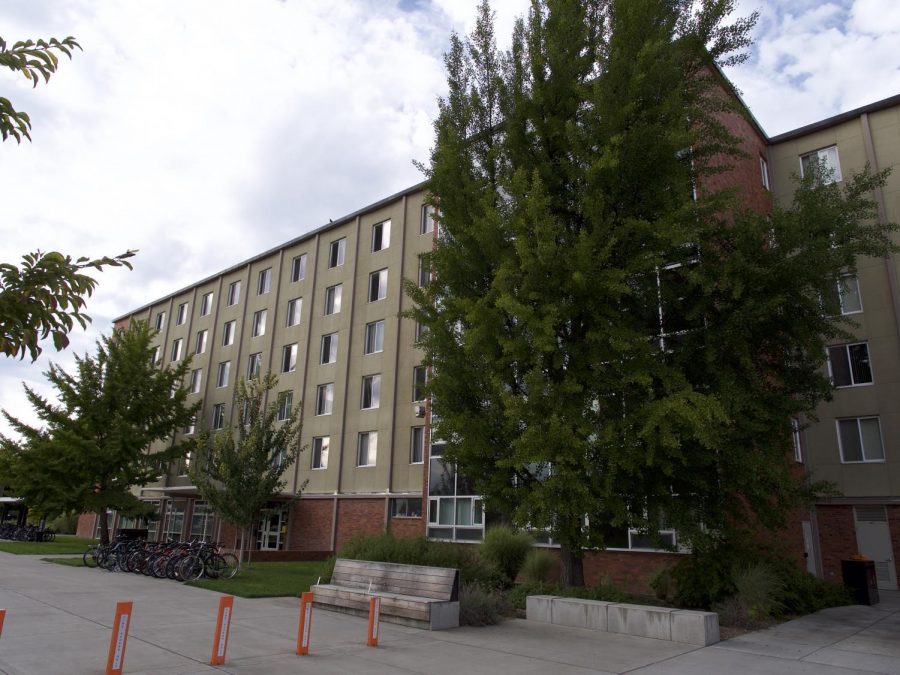Pride floor opens in Wilson Hall to support LGBTQIA+ students
September 24, 2018
This fall, OSU’s Wilson Hall residence hall will open a new special interest community. The sixth floor will now be known as the Pride Floor, an SIC devoted to serving and providing an inclusive space for lesbian, gay, bisexual, transgender, queer, questioning, intersex and asexual (LGBTQIA+) students.
The Pride Floor will feature gender inclusive restrooms and roommate matching, programming and events focused on LGBTQIA+ issues and access to resources to support community needs.
According to Teresita Alvarez-Cortez, director of UHDS Diversity Initiatives and Programs, the development of this community involved a great deal of collaboration between many offices, students and other community stakeholders. Among these are the Pride Center, Counseling and Psychological Services (CAPS), alumni and undergraduate students.
“The idea came from a growing need vocalized by students to have a dedicated space that has both a gender inclusive focus, as well as a focus on our lesbian, gay, bisexual, transgender, queer, questioning, intersex and asexual members of the OSU community and their allies (LGBTQIA+),” Alvarez-Cortez said in an email.
According to Alvarez-Cortez, the goal of creating this community is one that has been in the works for some time, although the actual planning began last fall term. Additionally, UHDS has already made efforts to offer more gender-inclusive facilities (such as multi-stall gender-inclusive restrooms) in other residence halls.
Kevin Ngo, Wilson Hall Resident Director, was also a part of planning for the Pride Floor. According to Ngo, his role included working with students (staff and residents) for their feedback. Moving forward, Ngo emphasized the importance of continuing to receive and respond to feedback from residents of this new community.
“Overall, it will be important during this first year to listen, observe and reflect on what the students share is necessary to their success. I am optimistic that this program will make that happen,” Ngo said in an email.
Alvarez-Cortez also expressed excitement to work with residents and their feedback.
“I am most looking forward to having the students here this fall and enabling them to help shape the future of the program with us. While we have a strong plan in place for programming, resources, student support and community building, we have also intentionally left opportunity for the community to help co-create the program with us based on their needs and interests. I cannot wait to have students move in and bring their own identity to their community,” Alvarez-Cortez said in an email.
Additionally, Ngo indicated that continued collaboration would be important in ensuring that residents can thrive in this new community.
“Given that the community centers on specific marginalized identities, it will be important to be aware of those identities when working with residents on any issues. Having strong relationships with campus partners, like the Pride Center, will also be important, as we want residents to feel like they have multiple spaces and homes on campus. Of course, this also means the live-in staff will work to build strong relationships with the students, as positive personal connections enhance our support,” Ngo said in an email.
According to Emmy Woessner, licensed psychologist at CAPS, an important part of developing the Pride Floor was ensuring that the community’s mental health needs could be met and that those resources are readily accessible. Woessner has worked as the CAPS liaison to the Pride Center and was subsequently invited to be part of planning for the Pride Floor.
“I am really excited to be able to offer students a sense of belonging, a place where they can develop their identities as members of the LGBTQ+ community, to feel that sense of self-understanding, self-awareness, understand some of the history of these communities, to have opportunities to try out different ways of self-expression, and to find ways of maintaining optimal mental heatlh,” Woessner said.
Moving forward, Woessner looks forward to continued growth in both the Pride Floor and across the OSU community.
“There is support across the university for social justice and for developing health identities across all marginalized communities,” Woessner said. “We all have work to do in growing in our awareness of social justice issues.
For more information, visit the Pride Floor Special Interest Community page on the UHDS website.
























































































































